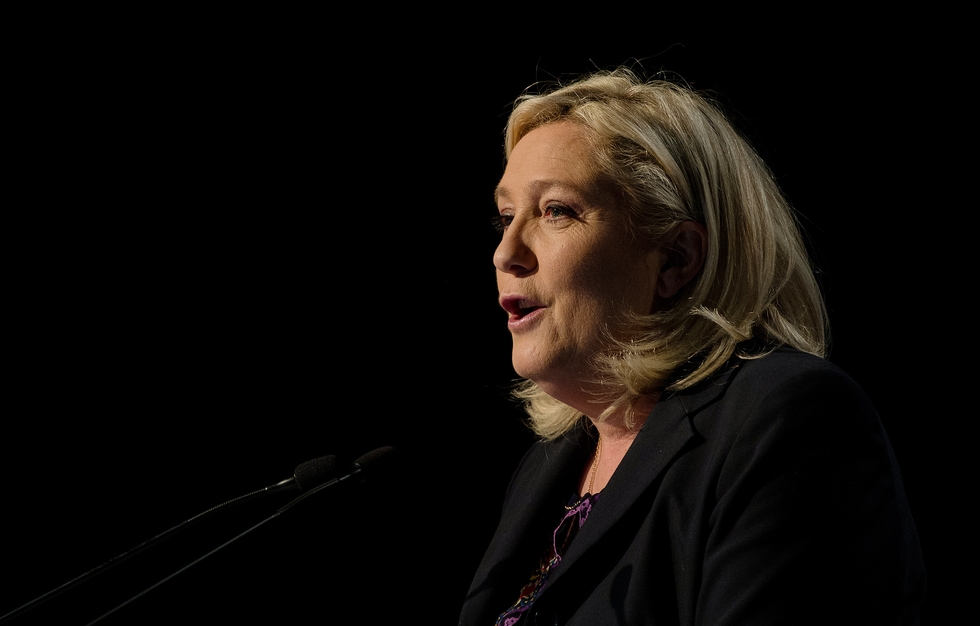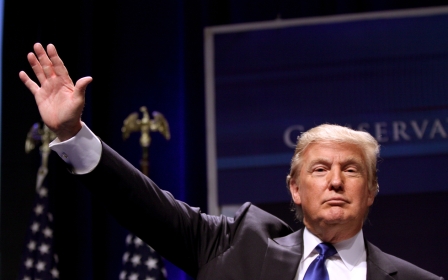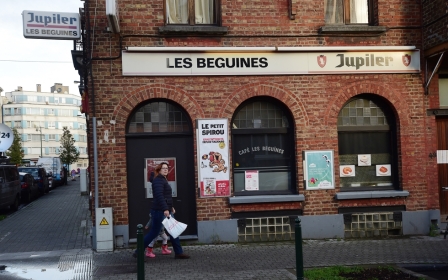France's far-right poll defeat masks its worrisome rise

Much has been made of the FN’s “failure” to gain any regions in the most recent French elections, despite the party leading in the first round with 30 percent of the vote and gaining 6.7 million votes, historically, their highest number yet.
The so-called failure is only read as such because some over-eager pollsters predicted a possible four region win, out of France’s total of 13, a dystopian vision for a French future if there ever was one. And the party may have indeed won at least one region had the Socialist Party not opted for a strategy of withdrawal from regions where it was up against a centre-right candidate, as part of its call for a unified “Republican front” against the Far Right.
The FN itself rightly regarded its gains as progress, with papa Le Pen, despite his "marginalisation" from the party ahead of the 2017 elections, congratulating the party on its trebling of its number of elected officials to regional councils.
Many commentators were in a self-congratulatory mood in the wake of the elections, arguing that the results were indicative of the party’s inability to achieve the normalisation it seeks within the French political sphere. Marine Le Pen has worked hard at normalising the party since she took over leadership in 2011, as part of her strategy of “dediabolisation”, seeking to “de-demonise” the image of a party with its roots in racist and xenophobic hate.
The strategy has been partly successful, not least through the efforts of Florian Fillipot, the strategic director of the FN presidential campaign, who has sought to distance the party from the anti-Semitism associated with the Le Pen patriarch. But the suggestion the FN’s inability to win one of France’s regional seats was somehow indicative of a national resistance to the normalisation of the FN is misplaced.
The party has been showing steady gains at all political levels – local, regional and even national where Ms Le Pen won almost 18 percent of the national vote in the first round of presidential elections three years ago and is, according to polls, set to make the second round of the 2017 elections.
In the most recent regional elections, the FN came top countrywide with 28 percent, beating its previous national record of 25 percent in European elections last year, and more than doubling its result in regional elections in 2010. The party finished first in six of France’s 13 regions, including some with no strong history of supporting the FN. In both Nord-Pas-de-Calais-Picardie, where Ms Le Pen was running, and Provence-Alpes-Cote d'Azur in the south, where her niece Marion Marechal-Le Pen was the candidate, the party grabbed fully 40 percent of the vote, increasing its share in the second round, despite ultimately losing. Today, the FN has 11 mayors in France, controlling local municipalities.
But more than its incremental political gains has been the seeping of its ideas into the political and media mainstream. During the last presidential elections, outgoing president Nicolas Sarkozy used a strategy to attract voters away from the FN towards his centre-right party which involved consistently playing on FN terrain, making insecurity, immigration and national identity pillars of his campaigns, and incorporating FN “causes” such as women-only swimming sessions part of his own social "concerns".
Even France’s Socialists increasingly seem interchangeable with their centre-right UMP counterparts, with France’s “left-wing” Prime Minister Manuel Valls recently admitting that Islam will be a “political stake” in the upcoming presidential election.
In his new book, Terror in the Hexagon. A Genesis of French Jihad, the French academic Gilles Kepel argues that the rise of French "jihadism" and the rise of the National Front are “congruent phenomenon” and at the heart of the rise of support for both is a sense of disconnect from society and its values, pointing to a sense of social exclusion as central to jihadist recruitment. Kepel notes that from 2012, the National Front appears to attract a number of Muslim candidates who share the sense of exclusion from the mainstream which Le Pen’s party capitalises on. In this sense, the pool of disenchanted French citizens has before it two extreme movements, capitalising on a similar sense of distance and isolation from society and politics.
Angered by the comparison, Marine Le Pen angrily tweeted images of Daesh acts of violence, apparently in an effort to highlight the gulf between the two groups, but unwittingly garnering ironic tweets suggesting her timeline may have been hijacked by Dabiq, in reference to Daesh’s online English language magazine.
But beyond the bizarre dynamic between the two groups, is a far more sinister reality. Within France today, an increasing number of people evidently feel marginalised from the mainstream political class and shut off from their social and economic aspirations. While Syria and the appeal of Daesh is a clear and obvious threat to the nation, as evidenced by the recent Paris attacks, the National Front’s gradual but steady ascension is no less concerning.
Today, the FN is the third-largest political party in France and its ideas and the debates it has managed to establish have fundamentally changed the nature of France. Laicite is now used as cover by both the UMP and the Socialist Party to justify their own expansion into previously FN terrain, with issues like headscarves and now the serving of pork in school canteens the new battleground in the debate over national identity.
There is a clear relationship between the party’s growth and the fact that a French national icon, such as Michel Houellebecq, publishes one of the best-selling novel in Europe today, Soumission (Submission), about an Islamic political party coming peacefully to power. Or that mainstream media figures can now outdo Ms Le Pen in their expression of racism under the cover of provocative ideas.
While Le Pen may have been cleared of incitement to racial hatred this month, media darling Eric Zemmour, currently on the payroll of some of France’s leading media outlets including Le Figaro and RTL France, was convicted of the same charge today, for comments he made in October 2014 in which he declared that Muslims have “their own civil code, the Quran” and in response to a question posed by a journalist “what are you suggesting, deporting five million French Muslims?”, to which he responded: “I know, it might seem unrealistic, but history is surprising. Who would have said in 1940 that a million pied-noir (French settlers), 20 years later, would leave Algeria to come back to France?”
While the FN may have sought to “detoxify” its image, it is arguable whether in the process of "normalising" its presence, the party has in fact normalised the expression of the kinds of ideas which were previously shunned to society’s margins and in so doing, altered the very balance of French society.
The FN’s very concrete gains are evidence that when playing on FN terrain, the main parties are likely to lose at this dangerous game. Perhaps the FN’s “normalisation” should be recast as cosmetic modifications to a party which has successfully led to France’s overarching lurch to the right.
- Myriam Francois-Cerrah is a Franco-British journalist, broadcaster and writer with a focus on current affairs, France and the Middle East.
The views expressed in this article belong to the author and do not necessarily reflect the editorial policy of Middle East Eye.
Photo: French far-right National Front (FN) leader Marine Le Pen delivers a speech following the announcement of results in the second round of French regional elections in Henin-Beaumont on 13 December, 2015 (AFP).
Middle East Eye propose une couverture et une analyse indépendantes et incomparables du Moyen-Orient, de l’Afrique du Nord et d’autres régions du monde. Pour en savoir plus sur la reprise de ce contenu et les frais qui s’appliquent, veuillez remplir ce formulaire [en anglais]. Pour en savoir plus sur MEE, cliquez ici [en anglais].





